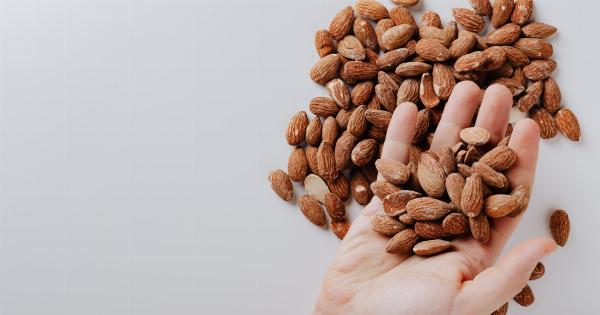Protein is one of the essential macronutrients that our body requires for various functions. It is necessary for building and repairing tissues, making enzymes and hormones, and maintaining a healthy immune system.
However, many people do not consume an adequate amount of protein in their diet, leading to protein deficiency. Protein deficiency can cause several detrimental effects on our body. Here are ten symptoms of protein deficiency to watch out for:.
1. Edema
Edema is a condition where there is an accumulation of fluid in the body’s tissues, causing swelling and inflammation. Protein is responsible for maintaining the balance of fluids in the body by preventing their accumulation in tissues.
A deficiency in protein can lead to edema, especially in the ankles, feet, and legs. If you notice any swelling or fluid retention in your body, it is best to consult a healthcare professional.
2. Poor Wound Healing
Protein plays a crucial role in wound healing. It is responsible for creating new tissues and repairing the damaged ones. A low protein diet can lead to poor wound healing, which can result in infections and complications.
If you notice a delay in the healing of cuts, bruises or any injuries, consult a medical professional, and increase your protein intake.
3. Weak Immune System
Protein is responsible for producing antibodies that fight against infections and diseases in our body. A deficiency in protein can weaken the immune system, making it more susceptible to infections.
If you notice frequent infections and illnesses, it may be a sign of protein deficiency.
4. Slow Hair and Nail Growth
Protein is essential for hair and nail growth. It provides the necessary building blocks for the formation of new hair and nail cells. A deficiency in protein can cause hair loss, thinning, and brittle nails.
If you notice a slow growth rate of hair and nails, it may be a sign of protein deficiency.
5. Loss of Muscle Mass
Protein is essential for building and repairing muscles. A low protein diet can lead to muscle wasting and loss of muscle mass. If you notice a decrease in muscle mass, consult a healthcare professional and increase your protein intake.
Protein-rich foods like meat, fish, eggs, and beans can help maintain muscle mass.
6. Feeling Weak and Fatigued
A low protein diet can cause weakness and fatigue as protein is responsible for producing energy in the body. Protein provides the necessary amino acids that are essential for producing energy in the form of ATP.
If you feel weak or exhausted even after resting and having an adequate amount of sleep, it may be due to protein deficiency.
7. Mood Swings and Anxiety
Protein is responsible for producing neurotransmitters like serotonin and dopamine, which are responsible for regulating mood and emotions. A deficiency in protein can lead to mood swings, irritability, and anxiety.
If you notice any of these symptoms, increase your protein intake and consult a medical professional.
8. Fatty Liver
A low protein diet can lead to the accumulation of fat in the liver, leading to fatty liver disease. Protein helps in the breakdown of fats and preventing their accumulation in the liver.
If you experience any symptoms like abdominal pain, fatigue, or jaundice, consult a healthcare professional.
9. Slow Development in Children
Protein is essential for the growth and development of children. A deficiency in protein can lead to slow growth, stunted development, and delayed puberty in children.
If you notice any growth-related concerns in your child, consult a pediatrician and increase their protein intake.
10. Anemia
Protein is responsible for producing hemoglobin, which carries oxygen in the blood.
A deficiency in protein can lead to anemia, a condition where there is a low amount of red blood cells in the body, resulting in fatigue, weakness, and shortness of breath. If you notice any of these symptoms, consult a medical professional and increase your protein intake.
Conclusion
Protein is an essential nutrient required for various functions of our body. A deficiency in protein can lead to several detrimental effects on our health.
If you experience any of these symptoms, consult a healthcare professional and increase your protein intake through protein-rich foods like meat, fish, eggs, and beans.





























